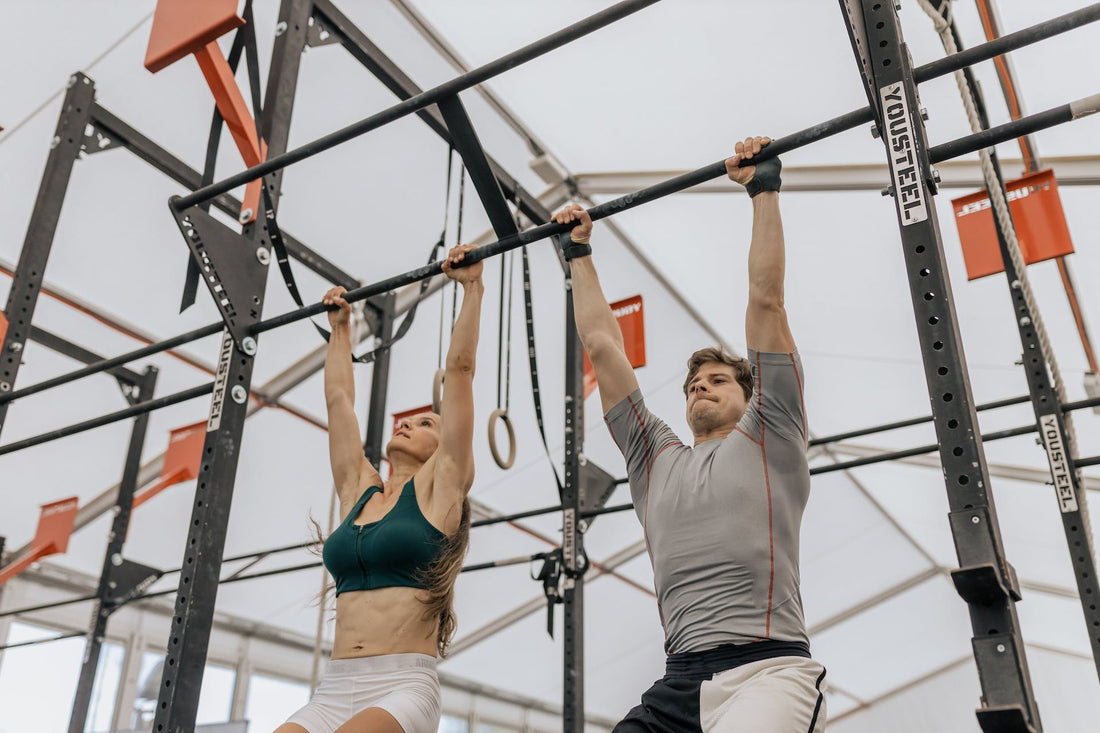
What Happens to Your Body When You Hang Everyday!
Share
Today, we're going to talk about something that might seem a little unconventional but is actually incredibly beneficial for your health - hanging!
What Happens to Your Body When You Hang Everyday!
Hanging, or suspended stretching, can do wonders for your body, especially as you age. In this video, we'll explore the various benefits of hanging, which muscles it targets, and how often you should incorporate it into your routine.
What are the Benefits of Hanging:
Hanging offers a wide range of benefits, and one of the most significant advantages is its positive impact on your spine. As we age, our spinal discs tend to compress, leading to back pain and reduced flexibility. Regular hanging can help counteract this compression by elongating the spine and increasing the space between vertebrae.
More specific Benefits:

Improved Posture:
Hanging can work wonders for your posture. Over time, poor posture habits, often developed from hours spent sitting at a desk or using mobile devices, can lead to a rounded or hunched back. Hanging helps by stretching and decompressing the spine, pulling it back into a more natural alignment. It encourages the shoulders to move down and back, reducing the tendency to slouch.

Pain Relief:
Chronic back and neck pain can be debilitating. Hanging can provide much-needed relief by gently stretching and relaxing the muscles and ligaments surrounding the spine. This relief is particularly beneficial for those who suffer from conditions like herniated discs, sciatica, or general muscle tension. It's a natural way to alleviate discomfort without the need for medication.

Increased Flexibility:
As we age, our bodies tend to become less flexible. Hanging combats this by promoting flexibility throughout the entire body, especially in the spine, shoulders, and hips. This improved flexibility can lead to greater ease of movement, reduced risk of injury, and a more active lifestyle.

Enhanced Grip Strength:
Hanging requires a sustained grip on the bar or handles, which effectively builds hand and forearm strength. Improved grip strength can translate to better performance in everyday activities like carrying groceries, opening jars, and more.

Improved Shoulder Health:
Hanging is a great exercise for your shoulders. It helps relieve tension in the shoulder area and can reduce the risk of shoulder impingements. For those with desk jobs or who engage in repetitive overhead movements, hanging can be particularly valuable in maintaining shoulder mobility and preventing discomfort.

Core Activation:
While hanging, your core muscles are continuously engaged to stabilize your body and prevent swinging. This sustained contraction helps to tone and strengthen your abdominal area. It's like a hidden bonus of hanging, contributing to a stronger, more stable core, which is essential for maintaining balance and good posture.
These benefits highlight the diverse advantages that hanging can offer, making it a worthwhile addition to your fitness routine, especially as you age.
So, which muscles benefit the most from hanging?

Latissimus Dorsi: These are the broad muscles of the back, which help shape the "V" taper.

Shoulder Muscles: Your deltoids and rotator cuff muscles get a good stretch and workout.

Forearms and Hands: Hanging significantly improves grip strength, which can be beneficial for everyday activities.

Abdominals: Your core muscles are engaged to stabilize your body while hanging.

